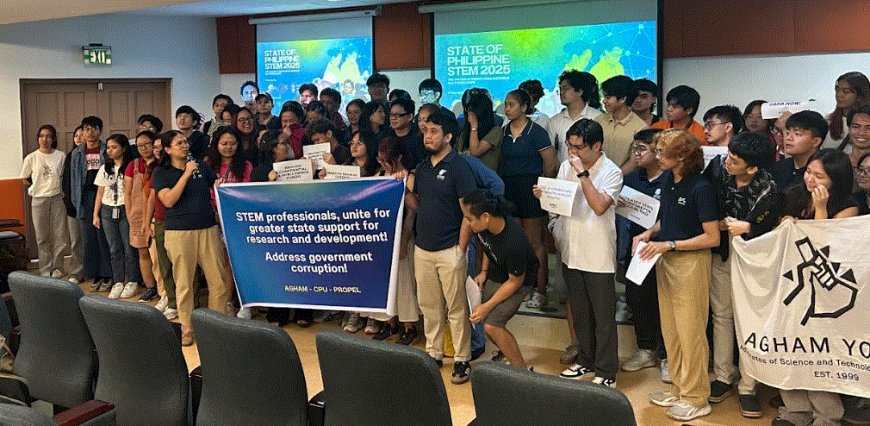Filipino Scientists Call for More Government Support in Science and Technology
A group of Filipino scientists from Agham highlighted the critical underfunding and underperformance of the country's science and technology sector. They emphasized the need for a comprehensive plan to strengthen the scientific community and workforce. The group presented data showing low public spending on research and development, lagging research productivity, and challenges in STEM education. They also raised concerns about brain drain and the plight of IT professionals facing low wages and job insecurity.

The Advocates of Science and Technology for the People (Agham) highlighted the critical underfunding and underperformance of the Philippines' science and technology sector, lagging behind ASEAN and global standards. Agham emphasized the need for a comprehensive plan to strengthen the scientific community and its workforce.
According to Agham, the country spent only 0.32% of its GDP on research and development (R&D) in 2018, significantly below the UNESCO recommendation of 1% for developing countries. The R&D budget has been decreasing annually, with a notable drop in the approved funding for 2025 despite being identified as the most disaster-prone country.
Research productivity data showed a significant gap compared to neighboring countries, with low publication output and patent activity. The Philippines also faced challenges in STEM education, with poor rankings in mathematics and science, and a persistent brain drain issue despite initiatives like the Balik-Scientist program.
The IT industry in the Philippines, despite advancements in digital technologies, is grappling with issues such as low wages, job insecurity, and a growing digital divide. A survey by the Computer Professionals' Union revealed concerns among IT professionals regarding living wages, unpaid overtime, and lack of career progression.
Agham criticized the lack of science advice in key policy decisions and urged the government to realign budget priorities, improve labor conditions for researchers, and invest more in science education and innovation to retain talent and drive progress.
According to the source: GMA Network.
What's Your Reaction?
 Like
0
Like
0
 Dislike
0
Dislike
0
 Love
0
Love
0
 Funny
0
Funny
0
 Angry
0
Angry
0
 Sad
0
Sad
0
 Wow
0
Wow
0





















































































































































































